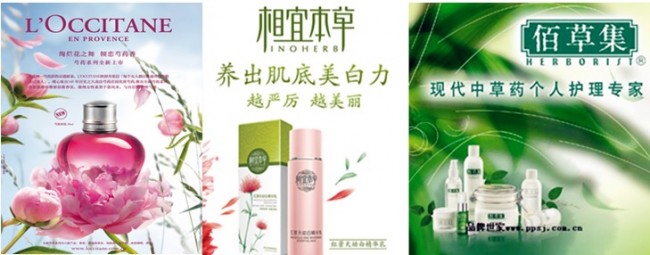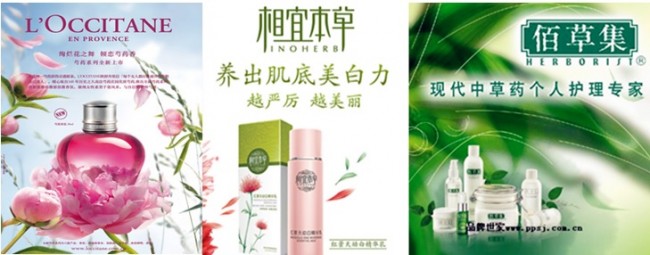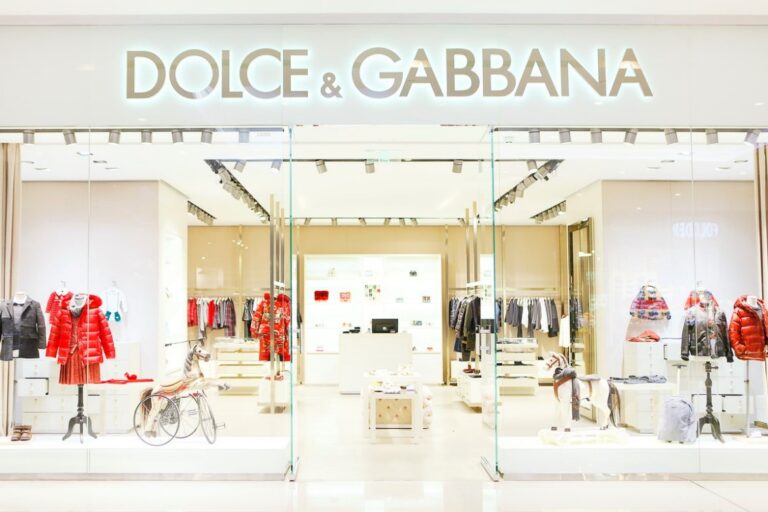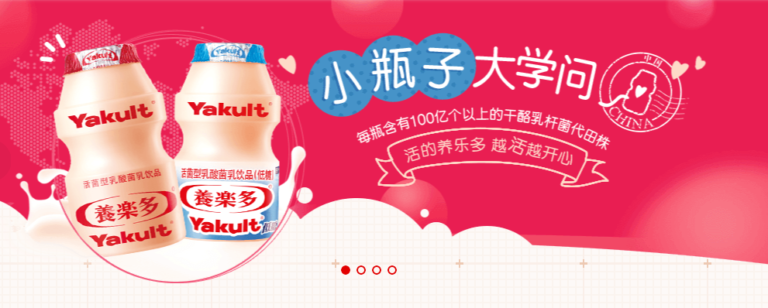With more and more multinational and domestic cosmetics companies launching new products into Chinese market, bio-cosmetics are becoming a fashionable trend. In the past six years, the annual growth rate of natural and eco-friendly personal care products is 12.4%. In 2008, the sales ofall personal care productswere $25 billion, which contributed to 0.52% of national GDP. According to market survey in Shanghai, the sales of personal care products in China will reach 502 billion RMB (77 billion dollars) by 2020.
Bio-cosmetics are defined as facial make-ups and lotions that do not contain harsh chemicals or artificial stabilizers. However, the advantage of bio-cosmetics is not just avoiding the use of artificial chemical or even harmful ingredients, but also popularizing the concept of nutritional and comprehensive treatment to increase skin`s healthiness. Furthermore, because these products use organic and natural ingredients, extracted from plants, they are also environmentally-friendly.
Why Bio-cosmetic in China?
China is a fastest-growing cosmetics market. It only costs 40-60 days for ordinary cosmetics to get production registration or to get import permit. The market mainly focuses on female consumers. Almost half Chinese females are citizens now, apart from the white collars, there are an increasing number of the rurals who are relocating themselves to cities for better working opportunities. They will demand more beauty products in the future.
According to National Bureau of Statistics in China, about 167 million 20-50 years old females are living in urban areas in 2012. This group of people has the strongest desire to try and use different organic and natural products, even some rarely-heard products that just enter the market but with good quality. Even though some overseas businesses do not have their stores in China, they still have many mail orders from China thanks to effective mouth-to-mouth marketing.
A good example for the vigorousness of bio-cosmetics industry in China is Xiang Yi Ben Cao (相宜本草), which reached a revenue of more than $133 million in 2013 with a profit margin of 18.06%. While its competitor Herborist (佰草集) created more than $80 million revenues in 2012 with a 16.66% increasing rate of sales quarterly. These successes are based on wide online and offline distribution channels. For instance, Herborist has more than 1000 stores (including independent stores and stores in cosmetics distributors) in Mainland and opens online stores in almost all popular Chinese shopping websites, such as Taobao, Amazon, Jingdong, etc.
While Xiang Yi Ben Cao and Herborist are targeting ordinary people, with its price ranging from $8 to $23 for a single product, various natural brands from France, Korea and Japan, targeting Chinese middle class group, have also gained much affection. L`occitane achieved $132 million revenues in 2013. The company grows more than 200 types of plants, 1/4 of which are organic. People believe overseas products are healthier. Also, L`occitane`s eco-packaging surprisingly attracts Chinese mid to high end customers.
Chinese Consumers` Consumptive Habit towards Organic and Natural Bio-Cosmetic in China
Herbal ingredients and bio-cosmetic are considered as a safer alternative than standard cosmetics containing synthetic additives. Apart from causing negative effects such as wrinkles and flaky facial skin, chemicals added into standard cosmetics may be absorbed through the bloodstream. This absorption may lead to toxic increase in the body over a period of time.
Chinese consumers understand this fact and tend to care more about skin`s health, especially facial condition. When it comes to facial products, Chinese customers, especially those who have been well-educated, become less price-sensitive. They believe nature- based and bio-products are better.
Moreover, people think that bio-cosmetics products can take customers` skin types into full consideration. No matter your skin is dry, oily or sensitive, there are always suitable products that fit your needs.
Future Prosperity of Foreign Bio-cosmetics Products
Since 2008 organic and natural herbal products have dominated the innovation process of new products. There are several growth potentials for companies who want to enter Chinese market or enlarge their market share.
First, the use of cosmeceuticals is a very popular trend in Asia. China is no exception. Consumers regard cosmeceuticals, mostly from France, as an omnipotent tool to deal with skin problems. And as Chinese people have the tradition to rely on the functions of herbs, it is not hard for them to accept other natural products. European companies can quickly take advantages of their natural agro-background to attract Chinese market share, while Chinese producers have to open more organic farms to against the main problem caused by pesticide pollution with Chinese herbs,
A second potential locates itself in anti-aging products and moisturizing products. A Xiang Yi Ben Cao four masks (red bean, red date, red ginseng and goji berry) with respective effects of whitening, nourishing, firming and moisturizing is very popular among young ladies now. Also, anti-aging is a fashionable question for all age groups. With the increasing life span of Chinese people, the topic will never cool down.
Furthermore, pregnant women have special demand for organic and natural cosmetics. They cannot use normal cosmetics during pregnancy. However, they will be very glad to use natural things to moisture skin if there is any, such as Wyeth, Folisa, etc.
Then, there are huge potential business opportunities in facial make-ups area. L’Oreal has already launched its mineral make-up with selected natural ingredients and mineral pigments, which can significantly brighten the face and avoid the trace of friction, adding fewer burdens to the skin.
Source:
https://marketingtochina.com/overview-marketing-practices-cosmetics-china/







